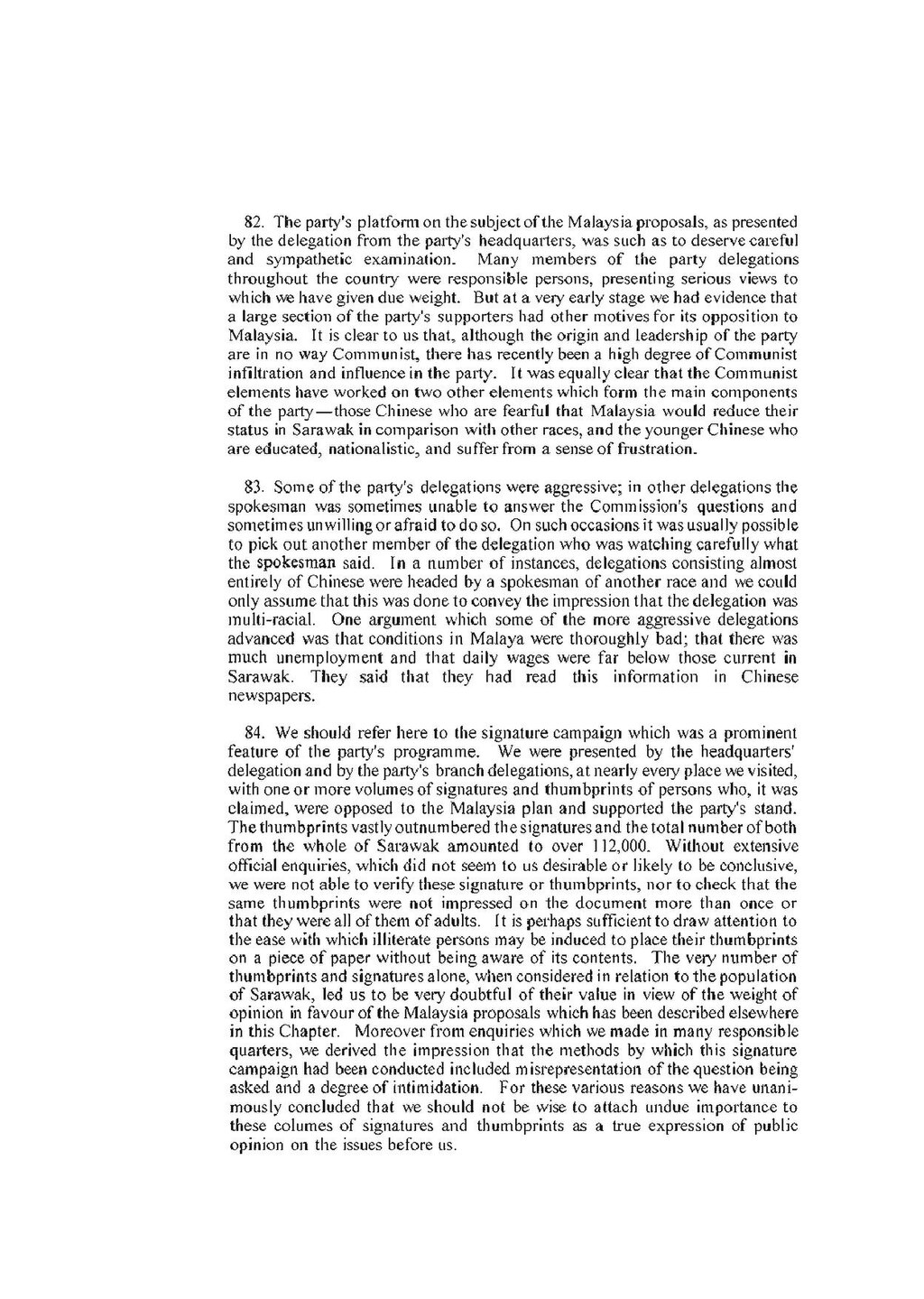82. The party's platform on the subject of the Malaysia proposals, as presented by the delegation from the party's headquarters, was such as to deserve careful and sympathetic examination. Many members of the party delegations throughout the country were responsible persons, presenting serious views to which we have given due weight. But at a very early stage we had evidence that a large section of the party's supporters had other motives for its opposition to Malaysia. It is clear to us that, although the origin and leadership of the party are in no way Communist, there has recently been a high degree of Communist infiltration and influence in the party. It was equally clear that the Communist elements have worked on two other elements which form the main components of the party—those Chinese who are fearful that Malaysia would reduce their status in Sarawak in comparison with other races, and the younger Chinese who are educated, nationalistic, and suffer from a sense of frustration.
83. Some of the party's delegations were aggressive; in other delegations the spokesman was sometimes unable to answer the Commission's questions and sometimes unwilling or afraid to do so. On such occasions it was usually possible to pick out another member of the delegation who was watching carefully what the spokesman said. In a number of instances, delegations consisting almost entirely of Chinese were headed by a spokesman of another race and we could only assume that this was done to convey the impression that the delegation was multi-racial. One argument which some of the more aggressive delegations advanced was that conditions in Malaya were thoroughly bad; that there was much unemployment and that daily wages were far below those current in Sarawak. They said that they had read this information in Chinese newspapers.
84. We should refer here to the signature campaign which was a prominent feature of the party's programme. We were presented by the headquarters' delegation and by the party's branch delegations, at nearly every place we visited, with one or more volumes of signatures and thumbprints of persons who, it was claimed, were opposed to the Malaysia plan and supported the party's stand. The thumbprints vastly outnumbered the signatures and the total number of both from the whole of Sarawak amounted to over 112,000. Without extensive official enquiries, which did not seem to us desirable or likely to be conclusive, we were not able to verify these signature or thumbprints, nor to check that the same thumbprints were not impressed on the document more than once or that they were all of them of adults. It is perhaps sufficient to draw attention to the ease with which illiterate persons may be induced to place their thumbprints on a piece of paper without being aware of its contents. The very number of thumbprints and signatures alone, when considered in relation to the population of Sarawak, led us to be very doubtful of their value in view of the weight of opinion in favour of the Malaysia proposals which has been described elsewhere in this Chapter. Moreover from enquiries which we made in many responsible quarters, we derived the impression that the methods by which this signature campaign had been conducted included misrepresentation of the question being asked and a degree of intimidation. For these various reasons we have unanimously concluded that we should not be wise to attach undue importance to these columes of signatures and thumbprints as a true expression of public opinion on the issues before us.
